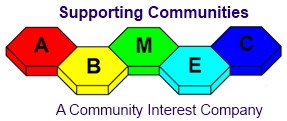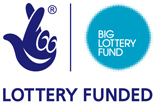Information and resources
for Cambridgeshire residents
ABMEC C.I.C. Compass House, Vision Park,
Chivers Way, Histon, Cambridge, CB4 9AD
Telephone: 01223 257 700 Registered Co. No. - 6096631
This web site is designed, hosted and the content supported by Thirdsectorweb.co.uk
Part of the SmithMartin Partnership LLP - an ethical practice, delivering community partnerships
ABMEC Translation here
ACTION FOR BME COMMUNITIES CAMBRIDGESHIRE
ABMEC C.I.C’s role is to meet the needs of individuals and communities and to organise training and multicultural events to meet that need.
ABMEC aims to improve the inclusion of Black & Minority Ethnic (BME) Communities in mainstream community life by identifying BME people who are in need, or who are not currently involved or supported by community organisations.
We undertake outreach work to target people who are not participating in, or unaware of community services – the disadvantaged, asylum seekers and migrants. Through working in partnership with local organisations and community consultation, we encourage all to have an active role in shaping the Project.
Our Project provides support and advice to disadvantaged BME people in Cambridgeshire and to existing community groups, offering a broad range of capacity-building activities in the form of multicultural events, support workshops, basic skills, and management skills training.
Activities include ESOL (English for Speakers of Other Languages) I.T. (Information Technology) Governance Training, Managing a Social Enterprise, Food & Hygiene, Health issues, Creative Art and First Aid.
We work with you to provide a service that will benefit you and your community.
If we can help - contact us here...
The ABMEC Team
Celebrating Africa
Images of Africa by JackyR - Wikimedia Commons
Africa is the world's second-largest and second-most-populous continent, after Asia. At about 30.2 million km² (11.7 million sq mi) including adjacent islands, it covers 6% of the Earth's total surface area and 20.4% of the total land area.
With 1.0 billion people, it accounts for about 14.72% of the world's human population.
The continent is surrounded by the Mediterranean Sea to the north, both the Suez Canal and the Red Sea along the Sinai Peninsula to the northeast, the Indian Ocean to the southeast, and the Atlantic Ocean to the west. The continent includes Madagascar and various archipelagoes. It has 54 fully recognized sovereign states ("countries"), 9 territories and three de facto states with limited recognition.
Africa, particularly central Eastern Africa, is widely regarded within the scientific community to be the origin of humans and the Hominidae clade (great apes), as evidenced by the discovery of the earliest hominids and their ancestors, as well as later ones that have been dated to around seven million years ago – including Sahelanthropus tchadensis, Australopithecus africanus, A. afarensis, Homo erectus, H. habilis and H. ergaster – with the earliest Homo sapiens (modern human) found in Ethiopia being dated to circa 200,000 years ago.
Africa straddles the equator and encompasses numerous climate areas; it is the only continent to stretch from the northern temperate to southern temperate zones. The African expected economic growth rate is at about 5.0% for 2010 and 5.5% in 2011.
Afri was a Latin name used to refer to the Carthaginians who dwelt in North Africa in modern-day Tunisia. Their name is usually connected with Phoenician afar, "dust", but a 1981 hypothesis has asserted that it stems from the Berber word ifri or ifran meaning "cave" and "caves", in reference to cave dwellers. Africa or Ifri or Afer is the name of Banu Ifran from Algeria and Tripolitania (Berber Tribe of Yafran).
Under Roman rule, Carthage became the capital of Africa Province, which also included the coastal part of modern Libya. The Latin suffix "-ica" can sometimes be used to denote a land (e.g., in Celtica from Celtes, as used by Julius Caesar). The later Muslim kingdom of Ifriqiya, modern-day Tunisia, also preserved a form of the name.
Source: Wikipedia

